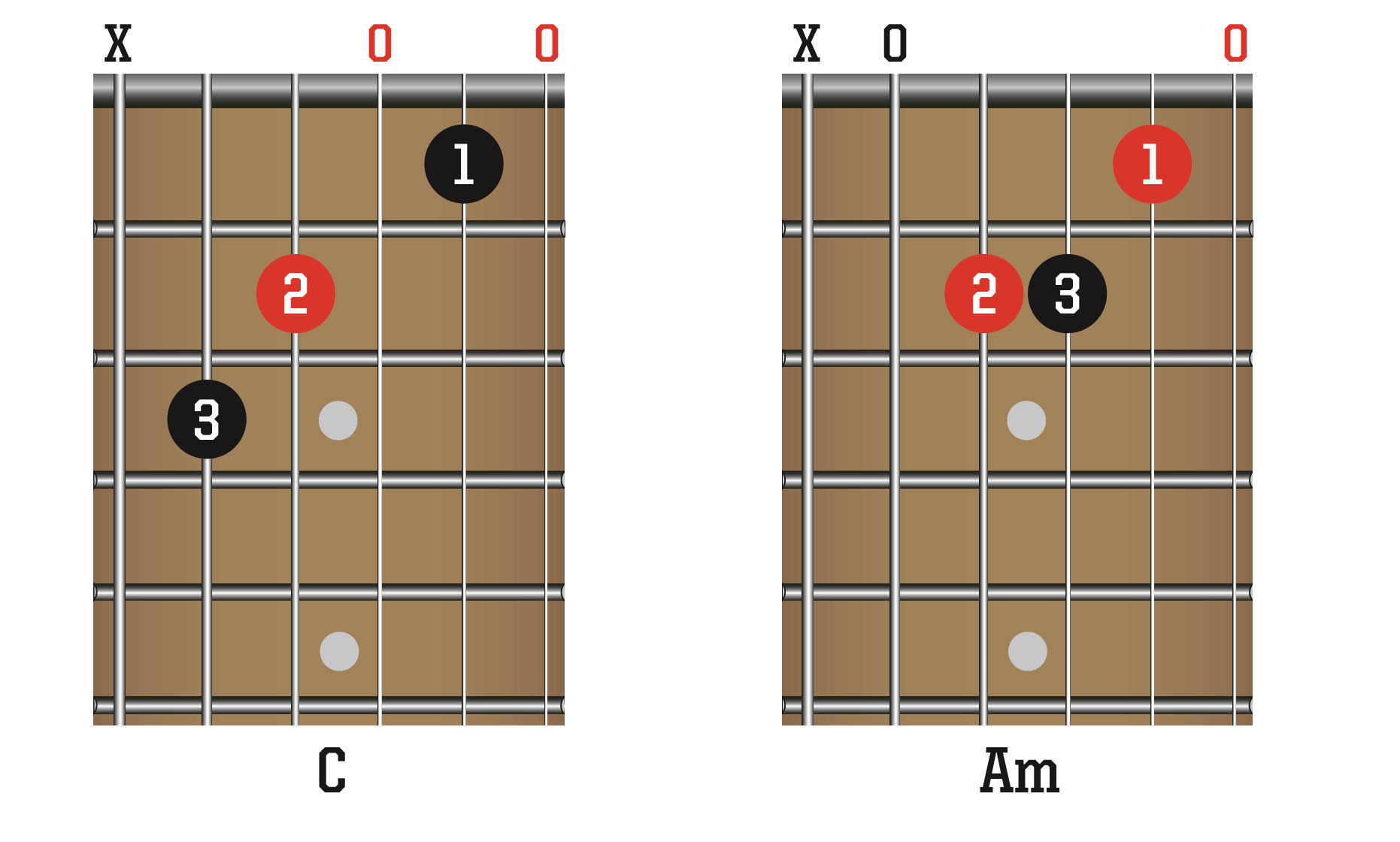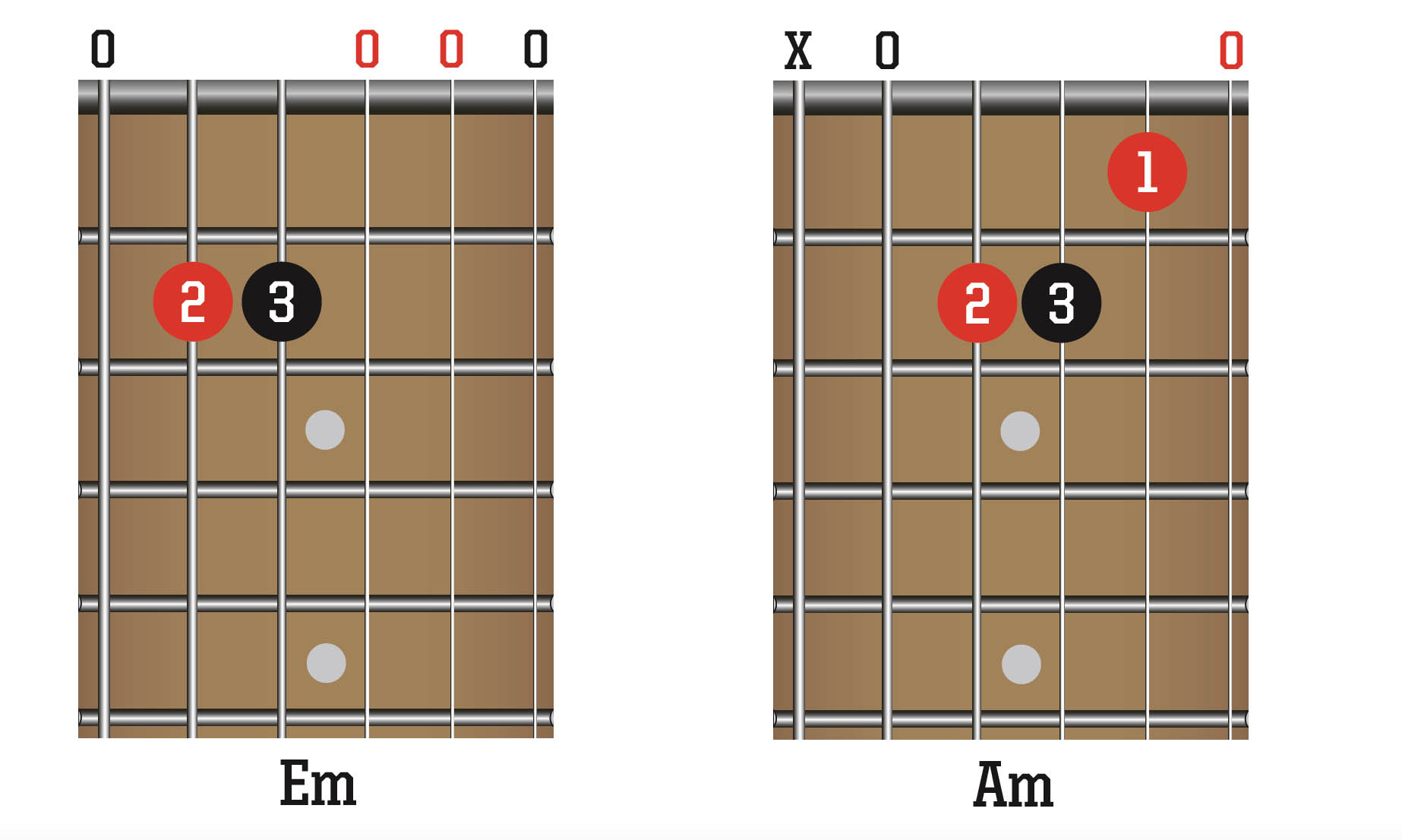How to change between guitar chords
Having learned your first chords, it's time to put them together with some easy techniques to make your transitions easier
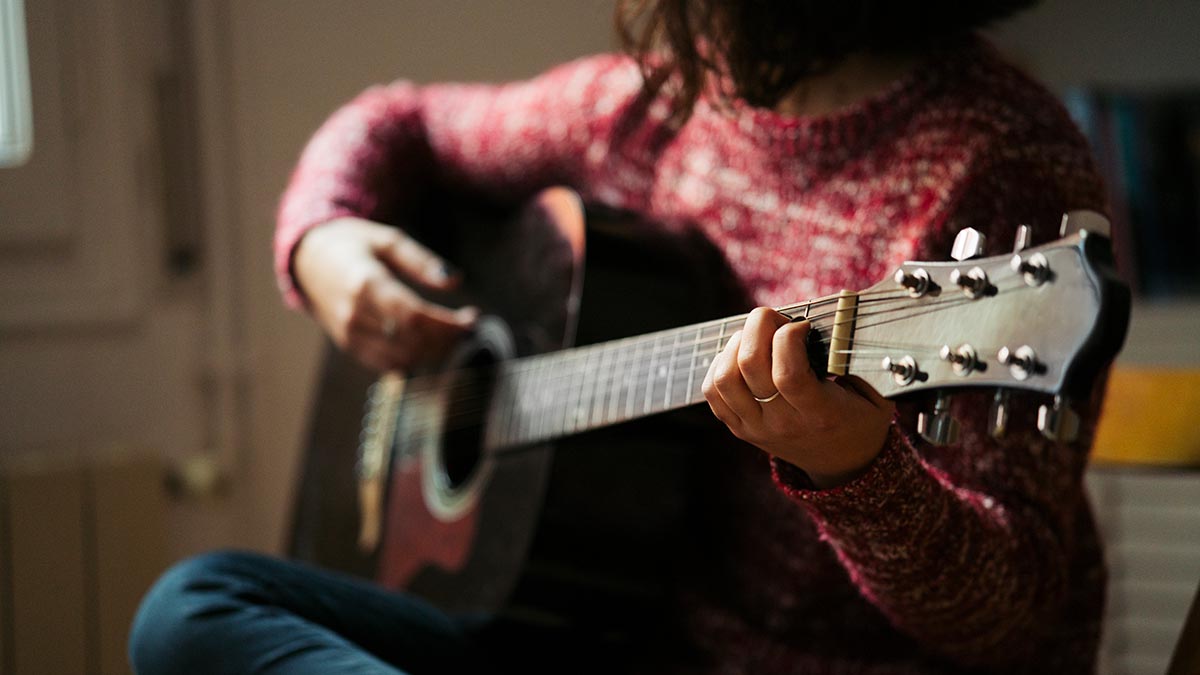
Music is made up of sequences of chords (known as chord progressions) – so that means you need to be able to change from one chord to another.
It takes time to develop fretting skills, so don’t be discouraged if it takes a while. Even experienced guitarists can struggle with new chords.
It’s a matter of training your fretting fingers to move quickly and with as little movement as possible. Try out these two tricks to make your changes as smooth as can be.
Anchoring your fingers: C and Am
C and Am share two fretted notes (as well as an open string) played by the same fingers. Keep these fingers in place as you change between the two chords.
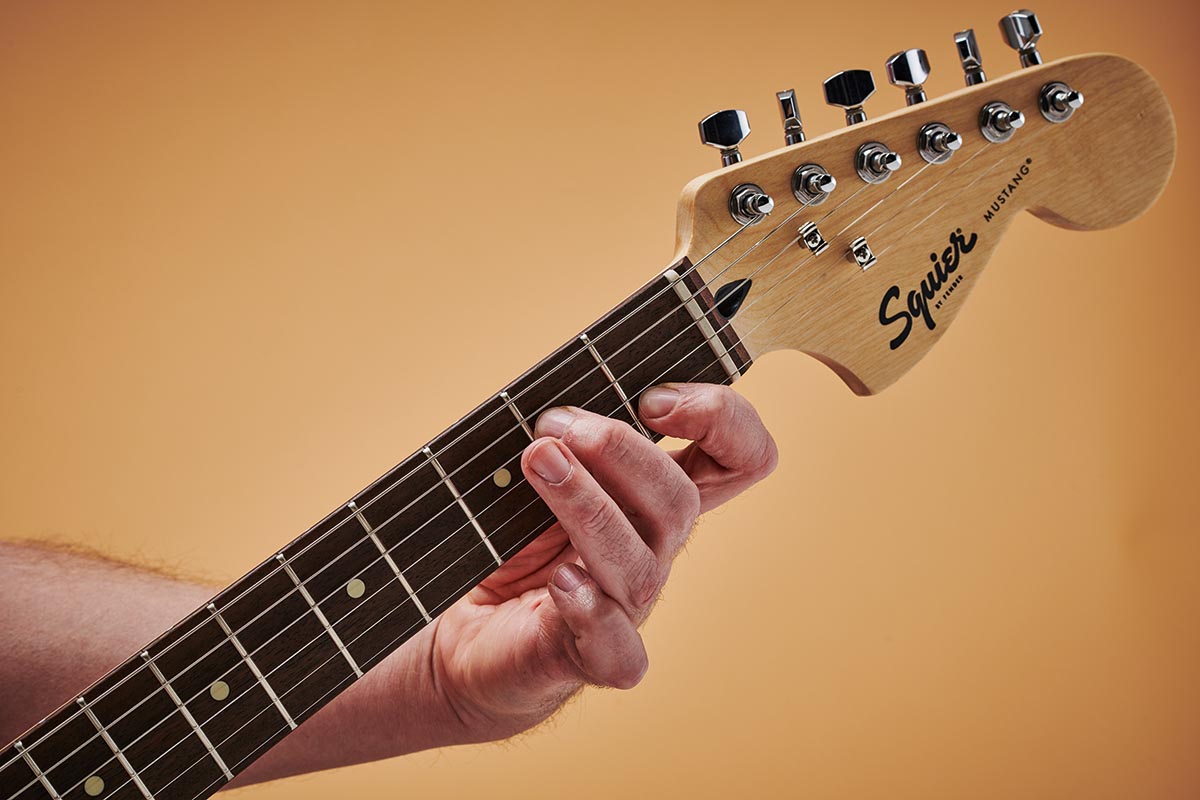
‘Keeping two fingers ‘anchored’ in place helps guide your third finger as it moves. In reality, you may have to make tiny positional adjustments – but basically, these two fingers don’t move.
Moving in a block: Em and Am
Look at Am and Em side by side and you can see they both use the second and third fingers at the 2nd fret, but on different strings. This can make the change easier.
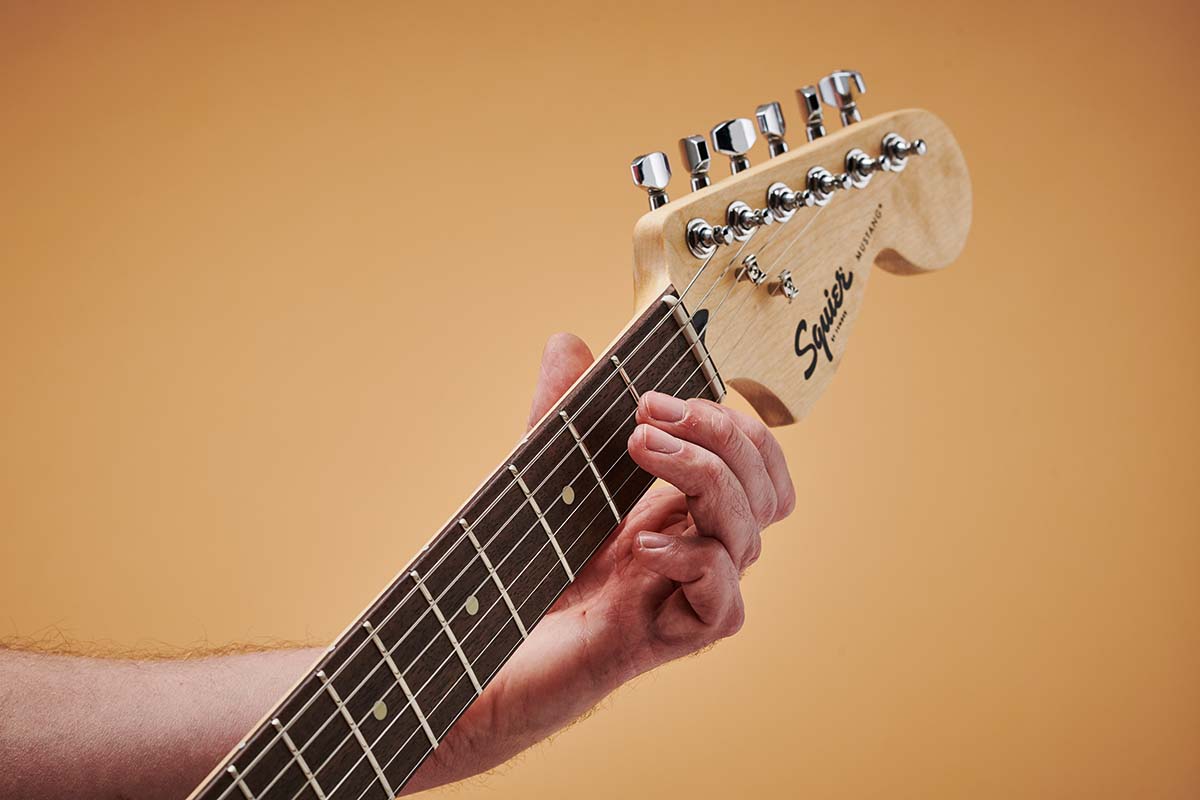
Because the shapes are similar, it’s possible to move your fingers in a ‘block’. Simply keep your second and third fingers formed in the shape of the chord as you move.
All the latest guitar news, interviews, lessons, reviews, deals and more, direct to your inbox!
One-minute chord change challenge
1. Choose two chords to practise
2. Set a timer for a one minute countdown
3. Swap between your chords as many times as you can
4. Note down your score and try again
The rules:
• If any notes don’t ring clearly, discount that chord from your total
• Be strict with yourself so you get a true picture of your progress.
Total Guitar is one of Europe's biggest guitar magazines. With lessons to suit players of all levels, TG's world-class tuition is friendly, accessible and jargon-free, whether you want to brush up on your technique or improve your music theory knowledge. We also talk to the biggest names in the world of guitar – from interviews with all-time greats like Brian May and Eddie Van Halen to our behind the scenes Rig Tour features, we get you up close with the guitarists that matter to you.
